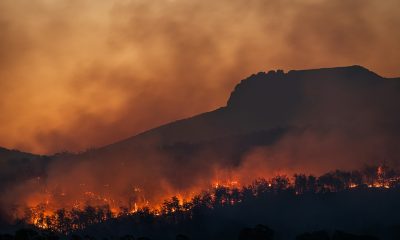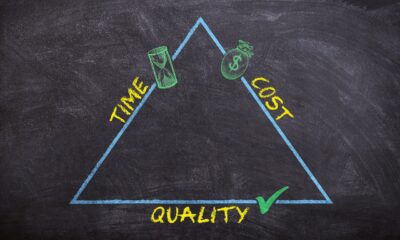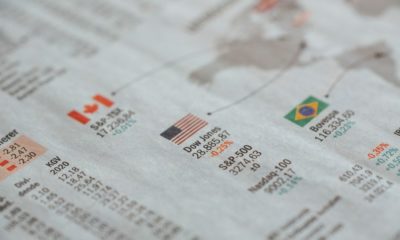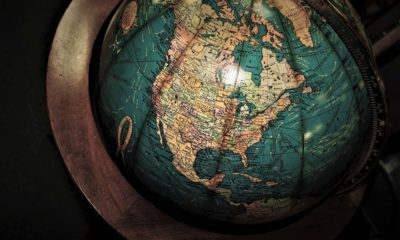Africa
Algeria is trying to overcome the economic crisis on its own
With the economic slump adding to the health crisis, the Algerian president decided to reshuffle key departments in the country. The Central Bank has just published alarming figures on the fall in bank liquidity. Algeria is particularly exposed to oil price fluctuations because of its dependence on oil rent, which accounts for more than 90 percent of its external revenues.
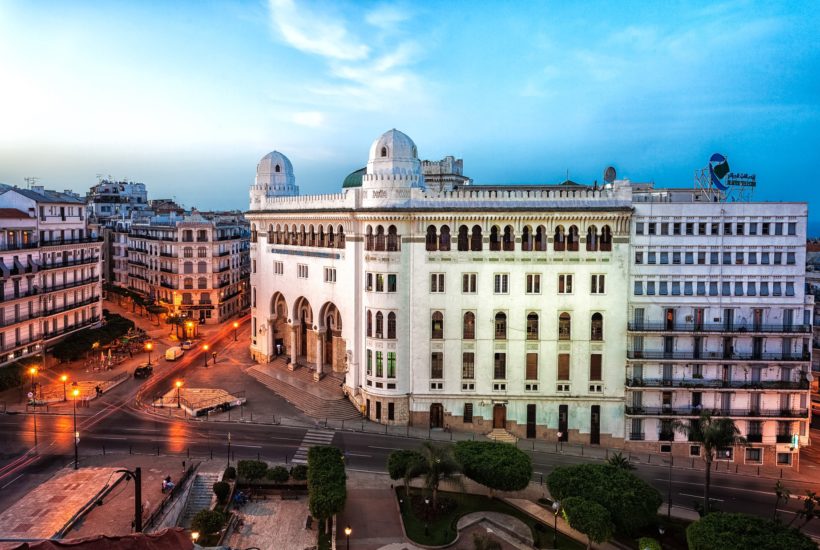
Overly dependent on oil revenues, which provide the bulk of its income, Algeria faces a significant risk of economic stagnation. That led President Abdelmadjid Tebboune to proceed Tuesday evening, June 23rd, to a partial ministerial reshuffle which targets finance and energy, two key economic sectors. Most of the regalian ministries, Foreign Affairs, Interior, and Justice, retain their incumbents, with the exception of the strategic portfolios of Energy and Finance.
Find out more about the changes made by Algeria’s president in order to help the country’s economy and read the most important economic news in the world with the Born2Invest mobile app.
Attar to Energy, Ben Abderrahmane to Finance
Abdelmadjid Attar, former CEO of the Algerian public oil giant Sonatrach (1997-2000), will replace Mohamed Arkab. Attar has been propelled to the head of the Ministry of Mines, according to a laconic statement by the official press agency APS published late Tuesday evening, June 23rd.
The second major change concerns the Ministry of Finance, where Abderrahmane Raouya cedes his position to the governor of the Central Bank, Aymen Ben Abderrahmane. The reorganization of the government, rumored in recent days in Algiers, also affects higher education, agriculture, transport and tourism.
Economic and social difficulties are becoming clearer
Algeria, very vulnerable to the fall in oil prices and faced with a crisis in the political system coupled with a health emergency, sees the threat of a financial crash and social unrest looming.
The Central Bank has just published alarming figures on the fall in bank liquidity. As for foreign exchange reserves, they are melting. They fell below $60 billion (€55 billion) at the end of March, compared to $79.88 billion (€73 billion) at the end of 2018 and $97.22 billion (€88.8 billion) at the end of 2017. According to some economists, these reserves could run out in the very short term.
In view of the collapse in crude oil prices in recent months, the reference price of a barrel of oil was revised downwards from $50 to $30 (from €45 to €27) in the recent supplementary budget law. Algeria is particularly exposed to oil price fluctuations because of its dependence on oil rent, which accounts for more than 90 percent of its external revenues, and the low level of diversification of its economy.
To address this worrying situation, the government has decided to halve the State’s operating budget and announced a reduction in the huge import bill from $41 to $31 billion (€38 to €28 billion).
However, Algiers refuses to resort to external actors
Algiers has also renounced recourse to foreign expertise firms for its major projects in order to save $7 billion (€6.5 billion) per year. And the public hydrocarbon giant Sonatrach will reduce its 2020 budget by 50%, the equivalent of €7 billion (€6.5 billion).
President Tebboune, who has ruled out taking out loans from the IMF and international financial institutions in the name of “national sovereignty”, has himself acknowledged the “vulnerability” of the Algerian economy “because of our decades of neglect to free it from oil revenues.”
According to IMF forecasts, Algeria is expected to experience a recession in 2020 (-5.2%) and one of the highest budget deficits in the region due to the oil crisis and the coronavirus pandemic.
__
(Featured image by manil_tebibel via Pixabay)
DISCLAIMER: This article was written by a third party contributor and does not reflect the opinion of Born2Invest, its management, staff or its associates. Please review our disclaimer for more information.
This article may include forward-looking statements. These forward-looking statements generally are identified by the words “believe,” “project,” “estimate,” “become,” “plan,” “will,” and similar expressions. These forward-looking statements involve known and unknown risks as well as uncertainties, including those discussed in the following cautionary statements and elsewhere in this article and on this site. Although the Company may believe that its expectations are based on reasonable assumptions, the actual results that the Company may achieve may differ materially from any forward-looking statements, which reflect the opinions of the management of the Company only as of the date hereof. Additionally, please make sure to read these important disclosures.
First published in LePoint, a third-party contributor translated and adapted the article from the original. In case of discrepancy, the original will prevail.
Although we made reasonable efforts to provide accurate translations, some parts may be incorrect. Born2Invest assumes no responsibility for errors, omissions or ambiguities in the translations provided on this website. Any person or entity relying on translated content does so at their own risk. Born2Invest is not responsible for losses caused by such reliance on the accuracy or reliability of translated information. If you wish to report an error or inaccuracy in the translation, we encourage you to contact us.

-

 Fintech2 weeks ago
Fintech2 weeks agoFintower Secures €1.5M Seed Funding to Transform Financial Planning
-

 Impact Investing20 hours ago
Impact Investing20 hours agoItaly’s Listed Companies Reach Strong ESG Compliance, Led by Banks and Utilities
-

 Impact Investing1 week ago
Impact Investing1 week agoBNP Paribas Delivers Record 2025 Results and Surpasses Sustainable Finance Targets
-

 Biotech2 weeks ago
Biotech2 weeks agoTwogee Biotech Advances Industrial Enzyme Solutions for Circular Production
